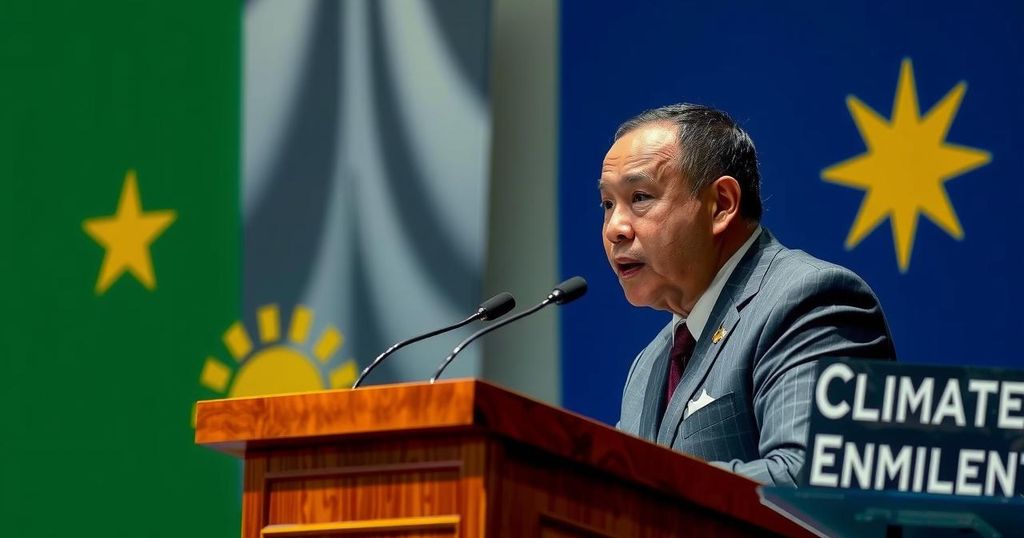Vanuatu’s Special Envoy for Climate Change, Ralph Regenvanu, criticized major emitters such as Australia and the US for inaction during the ICJ climate hearings. He emphasized that existing treaties are insufficient and called for urgent accountability and action against greenhouse gas emissions, asserting that climate change represents an existential threat requiring immediate legal and cooperative response.
Ralph Regenvanu, Vanuatu’s Special Envoy for Climate Change, has delivered strong criticism of Australia, the United States, and other major polluters during the climate hearings at the International Court of Justice (ICJ) in The Hague. He contended that these nations are relying on ineffective treaties instead of committing to serious actions required to reduce greenhouse gas emissions. Regenvanu emphasized the urgency of addressing climate change as an existential threat, noting its global repercussions.
Regenvanu expressed his dismay particularly at Australia and the United States, highlighting their substantial contributions to greenhouse gas emissions alongside their failure to confront the severity of the climate crisis. He remarked on the disappointing statements made by these countries and others like Saudi Arabia and China during the ICJ proceedings, which reflect a concerning lack of accountability and commitment to substantial emission reductions.
The Vanuatu case presented at the ICJ asserts that climate destruction is a violation of international law, including human rights and environmental obligations. Regenvanu articulated his concerns regarding the failure of these major emitters to recognize their responsibilities under international laws and the critical need for them to act in solidarity with vulnerable nations, which rely on their assistance.
In his call to former colonial powers such as France and the United Kingdom, Regenvanu expressed hope for their support in pursuing justice and self-determination for Vanuatu and similar nations impacted by climate change. He urged all nations, particularly those with historical responsibility and greater resources, to take immediate, legally grounded action in alignment with international law to combat the climate crisis effectively.
In conclusion, Regenvanu emphasized that the time for decisive action is now, insisting that no nation can afford to ignore the clarion call for responsible climate stewardship. His powerful message resonates with the imperative for collective action to mitigate the ongoing climate crisis that threatens the future of vulnerable nations across the globe.
The urgency of addressing climate change has taken center stage on international platforms, particularly through legal avenues such as the International Court of Justice (ICJ). Vanuatu, an island nation at the frontline of climate change impacts, has made significant efforts to hold major greenhouse gas emitters accountable for their role in exacerbating global warming. The ICJ hearings have highlighted the responsibilities of nations under international law, with a focus on the need for stronger action to combat climate change and protect vulnerable communities.
In summary, Ralph Regenvanu’s comments underscore the critical need for accountability among major emitters regarding their contributions to climate change. His call for immediate, responsible action aligns with the pressing global challenge posed by climate impacts, emphasizing the need for solidarity among nations to safeguard the future of vulnerable communities like Vanuatu. The implications of the ICJ hearings serve as a pivotal moment in the quest for climate justice and international cooperation in combating climate crises.
Original Source: islandsbusiness.com






